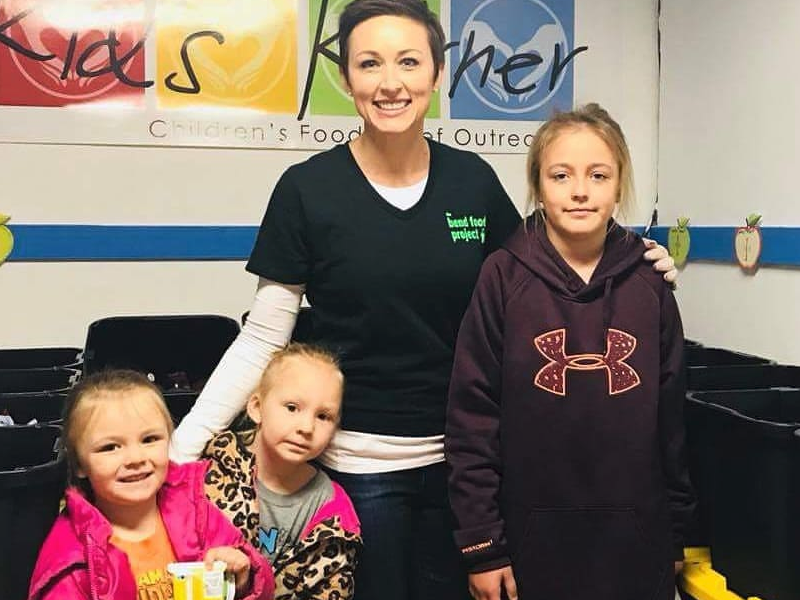Today, more than ever, it is imperative that we all face and embrace the grave disparities that exist in our communities, as people struggle with hunger in every county and congressional district in Oregon and the nation. The reality is, hunger does not discriminate, and it is no longer the stereotypical image most people envision.
Kristi Lucas, Mrs. Oregon America 2018, shared with us what hunger really looks like and her plan on how we can all play a positive role to End Hunger through Education and Empowerment.
Kristi grew up in a very poor family despite her parents both working full time. Kristi was one of three children who sometimes knew they would not eat outside of what was provided at school. Food stamps, food pantries, and state assistance was a regular part of Kristi’s life.
Kristi went to college and graduated and for a long time, lived in what she describes as a bubble, taking care of her and her own family, and not really looking outside of that. Then one day, she went on her daughter’s field trip and witnessed a classmate with very little to eat in her sack lunch and the issues of hunger came full circle.
At that point, Kristi became actively involved helping those in need of a meal.
1 in 8 people in our country are hungry. Most of us don’t understand what it’s like to be truly hungry and the psychological issues that come with it.
Food is not a privilege. It’s a necessity.
Access to food stamps and other resources for those in need is often looked down on and yet, we never know each person or family’s story. Food is such a basic need and Kristi’s hope is that everyone will become involved in filling the gaps that exist in our communities.
The challenge with state and non-profit funded programs is that they are often under-funded and if any single source of financial support is lost, there is a tremendous impact.
Statistically, families who struggle with food and hunger are also struggling with housing and health care. Over 40 million people in our country are having to choose between paying medical or housing bills and buying food. The State of Oregon is ranked the 14th “most hungry” state in the U.S.
Our hungry include veterans, senior citizens, and working families. The faces of hunger surprise you when you really get involved. It may be your neighbor. It may be your coworker. It may be someone in your family.
Kristi’s message is to help where you can. Get involved. Donate. Give food. Support Rotary programs that fight hunger (Kristi’s non-profit of choice is Feeding America).
Above all, understand that it does not matter what a hungry person’s story is. All that matters is they are hungry and by helping, you greatly increase their chance of moving in to better situations by helping to prevent illness, provide encouragement, and by letting them know they are not alone.
Image provided by Mrs. Oregon

